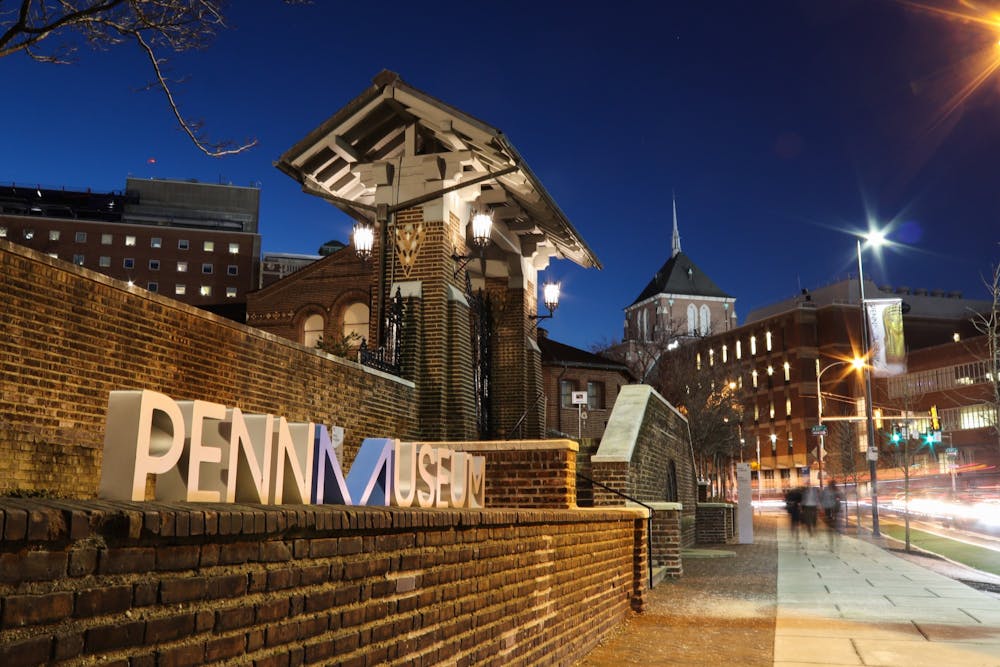
A hearing regarding the Penn Museum’s plans to bury remains from the Morton Collection is scheduled for Feb. 2, following an objection filed by community organizers.
This hearing, which will be heard by the Philadelphia Orphans' Court, could help determine which party will be responsible for the remains of Black Philadelphians that have been in possession of Penn Museum since 1966. It is scheduled for 10 a.m., and there will be a rally at City Hall in support of local activists starting at 9 a.m.
The museum’s petition, acquired by The Daily Pennsylvanian, is seeking approval to “respectfully bury and lay to rest the cranial remains of these 20 individuals at a historic African-American cemetery and commemorate them with a public memorial service,” according to a spokesperson from Penn Museum in a written statement to the DP.
However, Rutgers University professor Lyra Monteiro and local activist Abdul-Aliy Muhammad, filed objections to the museum's petition. They argued that the reburial of the Black Philadelphians should be overseen by their descendant community — insisting that the museum’s process does not include community engagement.
“The museum is claiming to be the one that can determine what happens to other people’s ancestors, which has always been the problem,” Monteiro said.
The Morton Collection was a “major site of the formation of scientific racism,” according to Penn Ph.D. graduate Paul Wolff Mitchell. It consists of over 1,300 human skulls collected by Samuel Morton, an 1820 graduate of what is now the Perelman School of Medicine. In April of 2021, students and West Philadelphians protested outside the Penn Museum to urge the Museum to return the remains of the collection.
In April of 2021, the DP reported on Penn Museum’s original plans to repatriate the remains. Over a year later, in May of 2022, the Museum filed a petition with the Philadelphia Orphans' Court, filing a request to bury at least 13 Black Philadelphians from the collection. Then, in July, Monteiro and Muhammad filed objections to the museum’s petition.
The Orphans’ Court is the municipal body that determines which party is allowed to make decisions in cases involving disputes about estates, trusts, and property of individuals incapable of handling their own affairs.
In their written statement, a Penn Museum spokesperson referred to recommendations made by the Morton Collection Committee — a committee that the museum assembled in August 2020 – insisting that there should be “community involvement and resources" when going forward with the repatriation and burial procedures.
In response to this report, the Morton Cranial Collection Community Advisory Group was founded to provide community input in advising its practices. Members of the group included numerous Penn faculty members, directors from the Penn Museum, and Philadelphia community members – including local spiritual leaders.
A spokesperson from the Penn Museum said that the Advisory Group recommended that the Museum arrange for the burial of the Black Philadelphians at Eden Cemetery, hold an inter-faith memorial service led by local spiritual leaders, place a permanent marker of remembrance located on Penn campus, and engage in a community-led public forum as part of steps towards restorative practices, atonement, and repair.
Monteiro said that Museum leaders did not seem open to community input, but rather Monteiro said that she believes Museum officials already "showed up with a fully formed proposal that is identical to their [current] proposal" on the first day that the Advisory Committee met.
When the Penn Museum filed a petition to the Orphans’ Court in May 2022 intending to bury the remains in the Eden Cemetery, Monteiro said the committee was not informed of it ahead of time, so she and Muhammad filed an objection that halted their burial of over a dozen Black Philadelphians in the collection. If not for their objection, Monteiro said that all of the bodies would have already been buried.
In January of 2023, Monteiro and Muhammad submitted their proposal “Finding Ceremony” to court. The proposal aims for a “consent-based process controlled by descendants and descendant community members.”
Earlier this month, Penn Museum announced that it had identified seven more Black Philadelphians in the collection, bringing the total number of Black Philadelphians identified – and to be buried – to 20.
Mitchell, who has done extensive research on the Morton collection as part of his dissertation, said that he believes that these additional remains were not a discovery.
“[The museum] did [initially] say that more [remains] could be found, but it was not expected," Mitchell said. "Why was it not expected? What occurred between May of 2022 and the present as the museum expanded its numbers? And what does that say about the thoroughness of the research that it was doing in 2022?”
There are currently no federal policies dictating what museums should do with human remains like those of the Black Philadelphians held by Penn Museum, according to Mitchell. He added, however, that Native Americans' remains are covered under the Native American Graves Protection and Repatriation Act, which says that all institutions that receive federal funding are required to return, as requested by tribal nations, the remains of indigenous ancestors of Native Americans to those tribal nations when a connection can be established.
Most recently, a report by ProPublica said that Penn Museum, along with a multitude of other museums across the nation, still possess Native American remains in violation of NAGPRA. According to Monteiro, many of the skulls in the Morton Collection are Native American remains.
Editor's Note: A previous version of this article erroneously wrote that a source said there is currently no federal legislation on what museums should do with any human remains it is possession of when, in fact, there exist federal policies dictating how to handle Native American remains. The DP regrets this error.
The Daily Pennsylvanian is an independent, student-run newspaper. Please consider making a donation to support the coverage that shapes the University. Your generosity ensures a future of strong journalism at Penn.
Donate







